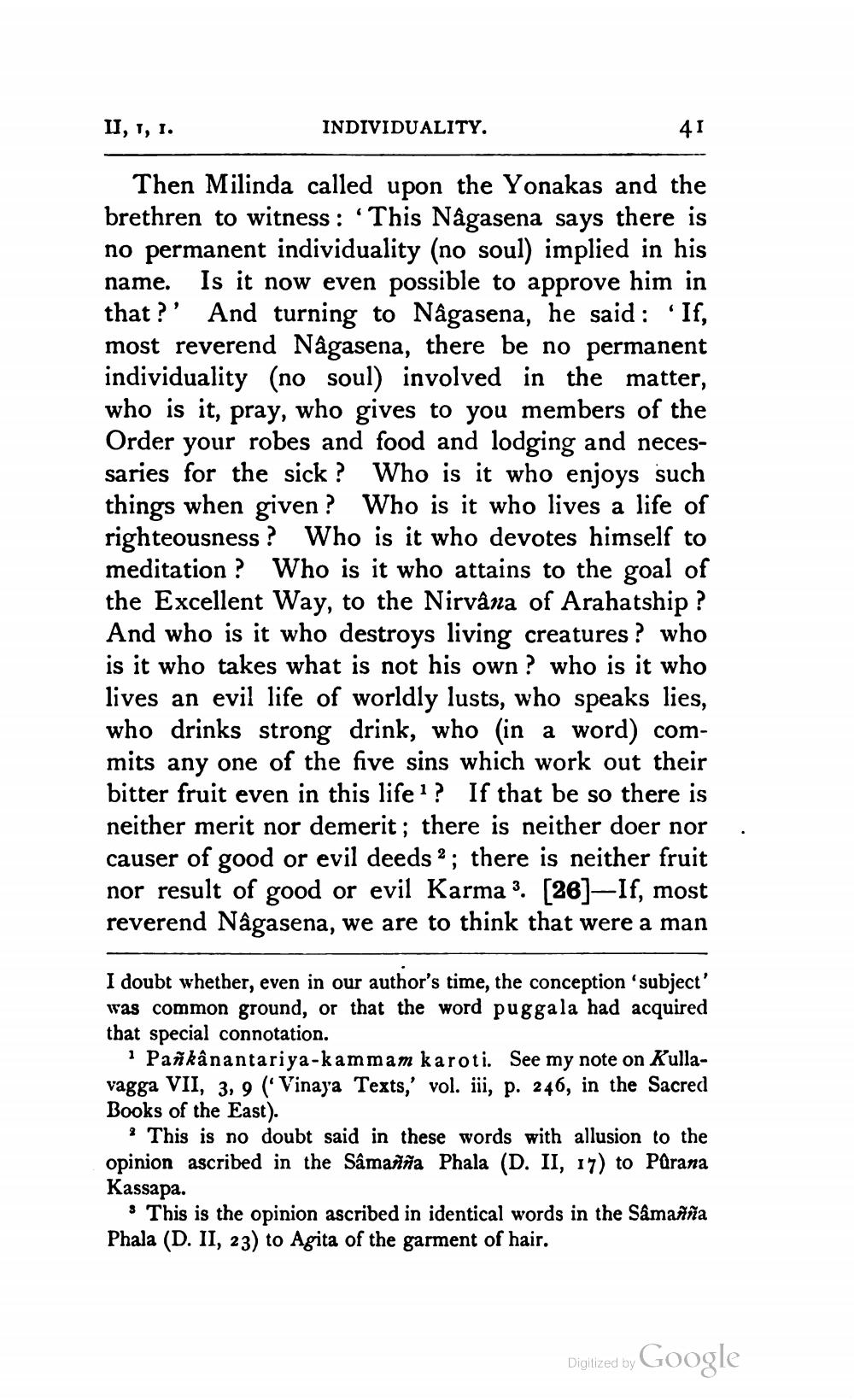________________
II, 1, 1.
INDIVIDUALITY.
41
Then Milinda called upon the Yonakas and the brethren to witness: 'This Någasena says there is no permanent individuality (no soul) implied in his name. Is it now even possible to approve him in that?' And turning to Nagasena, he said: 'If, most reverend Nagasena, there be no permanent individuality (no soul) involved in the matter, who is it, pray, who gives to you members of the Order your robes and food and lodging and necessaries for the sick? Who is it who enjoys such things when given ? Who is it who lives a life of righteousness? Who is it who devotes himself to meditation ? Who is it who attains to the goal of the Excellent Way, to the Nirvana of Arahatship? And who is it who destroys living creatures ? who is it who takes what is not his own? who is it who lives an evil life of worldly lusts, who speaks lies, who drinks strong drink, who (in a word) commits any one of the five sins which work out their bitter fruit even in this life 1? If that be so there is neither merit nor demerit; there is neither doer nor causer of good or evil deeds ? ; there is neither fruit nor result of good or evil Karma 3. [26]—If, most reverend Nagasena, we are to think that were a man
I doubt whether, even in our author's time, the conception 'subject was common ground, or that the word puggala had acquired that special connotation.
Pañkânantariya-kammam karoti. See my note on K’ullavagga VII, 3, 9 (Vinaya Texts,' vol. iii, p. 246, in the Sacred Books of the East).
? This is no doubt said in these words with allusion to the opinion ascribed in the Sâmañña Phala (D. II, 17) to Parana Kassapa.
* This is the opinion ascribed in identical words in the Samañña Phala (D. II, 23) to Agita of the garment of hair.
Digitized by Google




